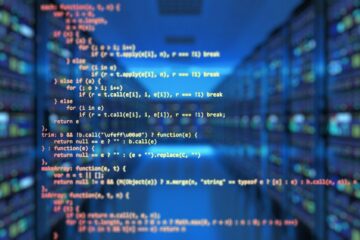![]()
Introduction:
Cyberspace or the virtual world has widened greatly due to technological advancements. This has further led to the committing of crimes over the virtual world which we generally refer to as cybercrime.
The cyberspace has easy access to everything, starting from a large scale of information available on the web to the world of lust or pornography. Women have always been the primary target in case of sexual offences whether in real-world or in the virtual world, however, it is seen that children are falling prey to the tentacles of sexual harassment and sexual offences over the cyberspace.
In order to tackle the menace of sexual harassment on children, the Protection of Children from Sexual Offences Act was enacted in 2012. It provided a robust legal framework to protect children from sexual assault, sexual harassment and child pornography while safeguarding the interest of the child at every stage of the judicial process.
The number of cases regarding online child sexual abuse has escalated over the past years due to easy access to the internet using smartphones. In April 2019, CyberTipline reported that out of the total reported cases of online child sexual abuse in the world India accounted for almost 11.7% of it. CyberTipline is USA’s National Centre for Missing and Exploited Children’s (NCMEC) centralised reporting system where individuals and service providers can report cases of online exploitation of children, child pornography, child sex trafficking, suspected online enticement of children for sexual acts etc.
The numbers of cases of child sexual abuse online are highly underreported due to various reasons. However, the government has applied various methods to track these kinds of cases.
About the POCSO Act, 2012
In order to effectively address the horrific incidents of child sexual abuse and sexual exploitation with more stringent or strict laws, the Government in 2012 enacted the Protection of Children from Sexual Offences (POCSO) Act. The act came into force from 14th November, 2012.
As mentioned earlier too, the POCSO Act is a comprehensive law in order to safeguard children from offences of sexual assault, sexual harassment and child pornography. The interest of the child is also looked after during the judicial process, incorporating child-friendly mechanisms in order to report such cases at their earliest, recording of evidence, investigation and speedy trial of the offences through specially designated courts.
The said act defines a child as any person below eighteen years of age. The act defines different forms of sexual abuse, including penetrative assault and non-penetrative assault (Section 3); it further defines sexual harassment and pornography. Section 5 of the Act defines “aggravated sexual assault”, when a mentally ill child is abused or when the said act is committed by a person who is in a position of trust or authority vis-a-vis the child such as a family member, a police officer, teacher or doctor. Anyone who commits trafficking of children for sexual purposes is also punishable under the provisions relating to abetment in this act. The act prescribes for stringent punishment graded on the basis of the offence committed which may range up to a maximum of rigorous imprisonment for life and fine.
In accordance with the international child protection standards, the act makes the reporting of any sexual offence as mandatory. Thus this provision casts a legal duty on the person who knows about any such offence, if he fails to report any such offence, he may be punished with a six months imprisonment and/or a fine (Section 21).
This act places the Police as the protector of the child during the process of investigation. On receiving a report of sexual abuse on a child the police must make all arrangements in order to ensure care and protection of the child, such as making necessary emergency medical arrangements, providing a shelter home to the child. The police are also required to report any case of child abuse to the Child Welfare Committee (CWC) within 24 hours of receiving the report. The CWC shall make other further arrangements for the safety and security of the child (Section 18).
The act makes provision for the medical examination of the child and it is designed in such a way to cause little distress to the child. However, the examination is to be carried in presence of a parent or any other person whom the child trusts and in case of a girl child, the examination is to be carried out by a female doctor.
The act provides Special court which shall conduct the trial in-camera and without revealing the identity of the child. The child may have a parent or other trusted person who shall be present at the time of testifying and also can call for assistance from an interpreter, special educator or other professional while giving evidence further, the child is not to be called repeatedly to testify rather the child can testify through video call rather than in a courtroom.
The act specifies that a case of child abuse must be disposed off within one year from the date on which it was reported. It further provides for the Special Court that such amount of compensation be provided to the child for proper medical treatment and rehabilitation as necessary.
The act is to be implemented with the active participation of the State governments. According to Section 39 of the Act the State government is required to frame guidelines for the use of individuals, NGOs, professionals, experts or persons trained in and having knowledge of psychology, social work, physical health, mental health and child development to assist the child at the stage of trial and pre-trial.
The POCSO Act recognises almost every kind of sexual abuse on children and has provision for punishment of the same. The act collaborates with different agencies of the state such as Police, Judiciary, and Child Protection Machinery to secure justice for a sexually abused child. The act encourages the children who have been the victim of the crime in reporting the offence, seeking redressal for their suffering as well as provides proper means to overcome their trauma.
Cyber Crime and POCSO Act: Legal Provisions
The Protection of Children from Sexual Offences (POCSO) Act, 2012 has provisions which are specially designed to protect children from online sexual offences and sexual harassment such as transmission or publication of child pornography.
In India, the cases of online sexual harassment on children are highly under-reported due to lack of knowledge of law or social stigma. The government and its agencies have taken up various initiatives in order to get a clear picture of online sexual abuse of children and also render them support by providing them easy ways to report such cases. In 2017 “POCSO-e box” was initiated where children or their guardians could report any case of cyberbullying, cyberstalking, morphing of images or child pornography. This “POCSO e-box” is a part of the National Commission for Protection of Child Rights (NCPCR)[1].
The POCSO Act has various provisions in regard to the sexual harassment of children and abetment of the same. The provisions shall be discussed in detail:
- Under Section 11 of the POCSO Act, a person is said to commit sexual harassment on a child when such person:
- utters any word or makes any sound, or makes any gesture or exhibits any object or part of the body with the intention, that such word or sound shall be heard, or such gesture or object or part of the body shall be seen by the child and does so with sexual intent or
- makes a child exhibit his body or any part of his body so as it is seen by such person or any other person; or
- shows any object to a child in any form or media for pornographic purposes; or
- repeatedly or constantly follows or watches or contacts a child either directly or through electronic, digital or any other means; or
- threatens to use, in any form of media, a real or fabricated depiction through electronic, film or digital or any other mode, of any part of the body of the child or the involvement of the child in a sexual act; or
- entices a child for pornographic purposes or gives gratification. ‘Sexual intent’ in such circumstances, is to be determined on the facts of the case
- Section 12 of the Act specifies the punishment for any of the offences mentioned in Section 11. The punishment for the said offences is imprisonment for a term which may extend to three years along with fine.
- Section 13 specifies that whoever uses or involves a child through any medium like print, online, television advertisement or programme (whether for personal use or other) for the purpose of “Sexual gratification”, where sexual gratification shall include:
- Representation of sexual organs of a child
- Use of a child in real or simulated sexual acts (penetrative or non-penetrative)
- Indecent or obscene representation of a child
- Shall be guilty of using a child for pornographic purposes.
- Section 14 mentions various punishments regarding the use of children in pornography under various circumstances as mentioned in the Act. Section 14(1) specifically mentions, whoever uses a child for the purpose of pornography shall be punished with imprisonment of either description which may extend to five years and shall also be liable to fine, in case of a second conviction the person shall be punished with imprisonment of either description for a term which may extend to seven years and shall also be liable to fine.
- Section 15 specifies the punishment for storage of pornographic material involving a child. Any person who stores pornographic material for commercial purposes involving a child shall be punished with imprisonment of either description for a period which may extend to three years and also be liable to fine.
- Section 20 levies an obligation on any personnel of the media or hotel or lodge or photographic facilities or club or studio (or by whatever name it may be called) to provide information to the Special Juvenile Police or local police, on coming across any sexually exploitative material involving a child (including pornographic material, sexually related or obscene representation of children).
In March 2020 the Central Government notified the POCSO Rules, 2020 which enables the implementation of recent amendments thus making punishments under the law more stringent. In order to restrict child pornography, the rule states that any person who has received any pornographic material involving a child or any information regarding such pornographic material being stored, possessed, distributed, circulated, transmitted, facilitated, propagated or displayed, or is likely to be distributed, facilitated or transmitted in any manner shall report the contents to the special juvenile police unit (SJPU) or police, or the cybercrime portal. It further states that the report should include the details of the device on which the pornographic material was noticed, the suspected device from which such content was received and also the platform on which such content was displayed.
The rules further stated for setting up child protection policy based on the principle of “Zero Tolerance” to violence against children, which shall be adopted by all institutions, organisations, or any other agency coming in contact with children.
Conclusion
The POCSO Act enacted in 2012 is quite a new law which needs to address the problems or crimes arising out of the virtual world more effectively. People should be made aware of the laws regarding child sexual abuse and thus encourage them to report any such case if they come across. Technological advancements are taking place daily thus increasing the rate of crime in the virtual world in new ways, thus the act also needs to keep updating itself according to the advancements taking place. In that way, it might be able to tackle the menace more effectively and swiftly.
[1] https://timesofindia.indiatimes.com/centre/cyber-crimes-against-children-can-now-be-reported-at-the-pocso-e-box/articleshow/59286190.cms



0 Comments